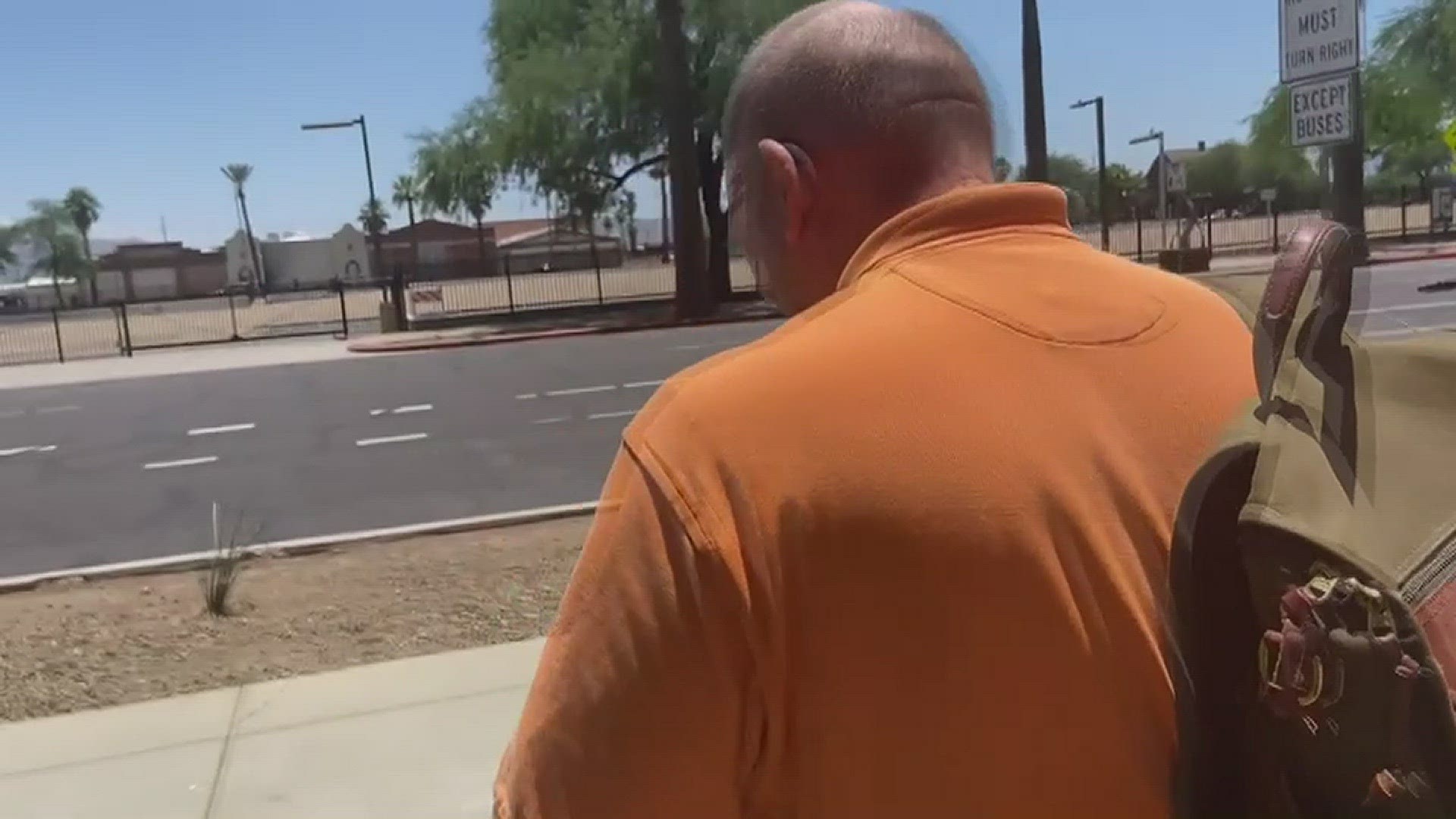PHOENIX — The executive director of the Arizona Corporation Commission declined to answer questions about the reliability and integrity of the process to investigate Commissioner Kevin Thompson’s multiple private meetings with investors.
The investors, from companies such as Credit Suisse, J.P. Morgan, Guggenheim and Bank of America, have a direct financial stake in public utilities.
Does Clark stand by integrity of ACC’s investigative process? No comment
Communication between public utility commissioners and investment groups can be beneficial to both parties under the right circumstances, according to a national regulators association. However, the association and ethics experts warn about ex-parte communications during open rate cases that erode public trust and have the potential to jeopardize a commissioner’s partiality.
After Commission leadership including Executive Director Doug Clark and Chief Counsel Robin Mitchell declined to comment on related matters in the past, 12News caught up with Clark Friday morning at the Commission office. Clark either said nothing or referred 12News to the commission’s communications staff, when asked questions about public trust in the commission’s processes.
12News asked Clark if he stands by the evaluation process that has taken place regarding Thompson’s trip, and whether he believes the issue has been handled appropriately. Clark did not respond. 12News asked Clark if he stands by the integrity of the ACC’s process to ensure Thompson didn’t have conflicts of interest or ex-parte concerns. Clark did not respond. 12News asked Clark if he had a response to comments by former Commission Chair Bob Burns who told 12News Thursday he felt Thompson cannot be perceived to be impartial in current utility rate cases.
“We have a public relations person that you should be speaking with,” Clark said.
Finally, 12News asked Clark if he could say why the public should have confidence the Corporation Commission will handle the rate case fairly. Clark did not respond.
Clark serves at the pleasure of the Commission and is responsible for day-to-day operations.
Commission discussed details of ethics complaint in secret
Arizona has a history of nefarious activity involving commissioners and in 2019 commissioners voted to adopt a Code of Ethics. It is considered stricter than most states. Among other items, it prohibits communications between commissioners and anyone who stands to benefit from commission decisions who is not a registered lobbyist. It also prohibits communications to and from commissioners involving “substantive merits” of a current proceeding, in accordance with state law. There is debate among current and former commissioners about what constitutes “substantive merits.” However state law makes it clear commissioners should err on the side of caution and that the law’s purpose is to avoid even “the possibility of prejudice, real or apparent.”
As 12News reported Thursday, Thompson participated in three additional private meetings – two described as one-on-one meetings – with financial entities in February. Those were in addition to meetings Thompson attended in New York in January that 12News had already reported. The Arizona Corporation Commission reimbursed Thompson for travel and lodging to the meetings in New York, which were hosted by the American Gas Association.
Consumer advocate Abhay Padgaonkar filed a citizen’s ethics complaint in February against Thompson for the New York trip. Commissioners held closed-door meetings about the complaint and voted 3-0-1 not to pursue the matter further. Commission Chair Jim O’Connor blasted Padgaonkar and critics who raised concerns about the trips, saying there was “zero evidence” of wrongdoing and the commission’s code of ethics was being weaponized against Thompson. He added the code of ethics was written during a different time and he believed the current commission was “beyond reproach.”
Padgaonkar said O’Connor’s opinions were impossible to verify because deliberations about Thompson’s New York trip in secret.
“There was zero evidence that the ACC conducted any investigation before declaring that there was zero evidence. The public deserves better from the taxpayer-funded administrative staff and elected commissioners,” Padgaonkar said.
Thompson maintained legal counsel gave him green light
Thompson said during the meeting he was relying on legal advice and believed such meetings were appropriate.
Padgaonkar wants an outside investigation, noting the ACC Code of Ethics preamble states commissioners are expected to act in a way that promotes public confidence, and that commissioners signed a joint letter in 2021 defending the code by saying “public confidence in the Commission is eroded if the public perceives that a Commissioner is not acting impartially.”
History of 12News' requests for comment from director, chief counsel
In late February, 12News requested comment from the commission’s previous executive director and the legal Chief Counsel Robin Mitchell about how the commission was handling the ethics complaint. Both declined to comment.
Clark was hired to lead the commission in April. On May 19, 12News asked Clark if he could say whether he has confidence in his staff to handle issues fairly, ethically and impartially. Clark declined to comment.
On Wednesday, 12News asked the Commission Communications director for a comment from the commission’s staff about the justification for why Thompson’s meetings did not violate the code of ethics.
On Thursday morning, 12News told Martin the public deserved to hear directly from Director Clark or Chief Counsel Robin Mitchell, the chief ethics officer. Martin did not respond.
On Friday, 12News met with Director Clark in the commission lobby. Clark declined to comment.
I-Team
Learn more about other 12News investigations by subscribing to the 12News YouTube channel and watching our I-Team playlist.


